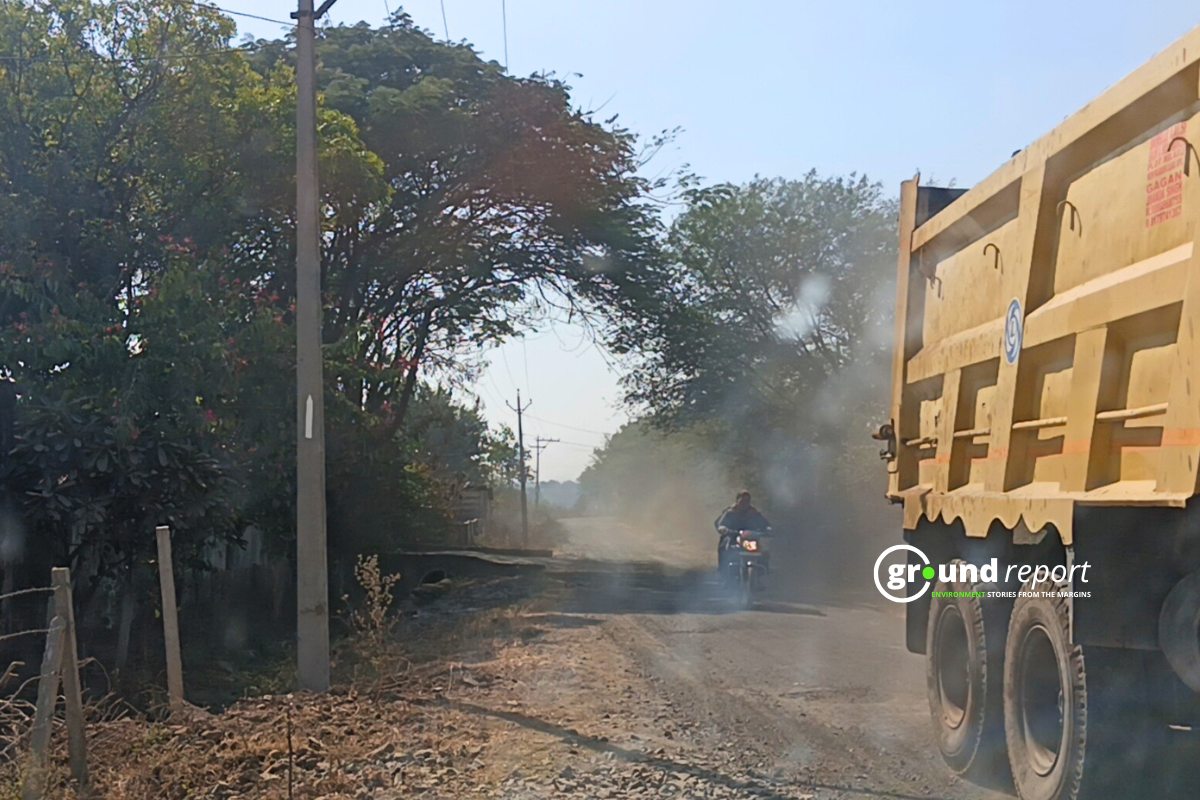A video showing thousands of cows standing in trucks at Adani’s port in Gujarat, allegedly destined for Arab countries, has been widely shared on social media. However, a ground report reveals that the video is misleading and misrepresents the situation.
Claim
A video circulating on social media purportedly shows thousands of cows being transported from Adani’s port in Gujarat to Arab countries for slaughter. The video was initially shared by a user named Sandeep Verma with a false claim, which was later echoed by multiple users, including Surya Raj नागवंशी.
गुजरात :- *अडानी* के पोर्ट पर *हजारों गाय* 🐄 ट्रको में खड़ी है। *अरब के देशों* में जाने के लिए… 😱😱😱
जिन्हे वहां काटा जाएगा…..कहा मर गए भक्तों..?? गधों को याद दिला दूं की गौ मांस का धंधा करने वालो से ही भाजपा ने चंदा लिया है। सब पैसे का खेल है।
😄 pic.twitter.com/ATGh3zOXDQ— Surya Raj नागवंशी (@Nagvanshi88) April 26, 2024
The video gained significant traction, accumulating over 1 million views and more than 10,000 shares across various platforms.
Reality
Upon fact-checking, Upon tracking down the origin of the video through Google, it was revealed that the footage was also posted on TikTok approximately five days ago, confirming its location in Egypt.
Further investigation into the user who shared the video on TikTok led to the discovery of their Instagram and Facebook accounts, where numerous similar videos were found.
الاستعداد لعيد الاضحى 🇪🇬🇪🇬
Posted by سوق اللحوم on Friday, April 19, 2024
Upon further examination, it was discovered that several Egyptian Facebook pages, including “سوق اللحوم” (Meat Market), had also shared similar videos depicting the transportation of livestock. The caption of the video on this page, which translates to “Preparing for Eid Al-Adha” in English, suggests that the footage was related to the cultural event of Eid Al-Adha, commonly known as the Festival of Sacrifice.
With over 2 million views on Facebook, the widespread circulation of these videos highlights their significance within the context of cultural practices and celebrations in Egypt.
The user, identified as a meat wholesaler, frequently posted images of meat products, providing additional context to the nature of the video and reinforcing its connection to the meat industry in Egypt.
Upon further investigation, it was uncovered that the original poster of the video is Hamed ELhagary, a meat wholesaler based in Damietta, Egypt. ELhagary shared the video on April 19, 2024, from Râs El-Barr, Dumyat, Egypt. A deeper look into his profile unveiled a series of similar videos, with one such video also being posted on TikTok on April 22.
In his Facebook post, ELhagary captioned the video in Arabic, which translates to: “The one who sleeps on the goods and waits for them to be removed. The first 25,000 heads.” The context is related to livestock transportation and not the misleading claim about cows being sent to Arab countries for slaughter.
اللى نايم ع البضاعه ومستنى ترفع اول 25000رأس🇪🇬🇪🇬🇪🇬⬇️⬇️
Posted by Hamed ELhagary on Friday, April 19, 2024
The video’s visual cues also debunk the claim. The van seen in the video does not resemble Indian transport vehicles. Instead, it closely resembles those commonly used in Egypt. Additionally, the attire of the people handling the cows is not typical workwear in India.
Fact check
Based on the evidence gathered through the fact-checking process, it is evident that the claims made by social media users regarding the origin and purpose of the video are false. The video does not depict cows being exported from Adani’s port in Gujarat to Arab countries for slaughter. Instead, it showcases cattle being transported within Egypt.
Keep Reading
MP Balram Talab Yojana 2023: Farmers get support to build ponds
Will the Ken-Betwa project benefit the Bundelkhand region?
Follow Ground Report for Environmental News From India. Connect with us on Facebook, Twitter, Koo App, Instagram, WhatsApp and YouTube. Write to us at GReport2018@gmail.com and subscribe to our free newsletter.
Don’t forget to check out our climate glossary, and learn difficult environmental terms in simple language.









